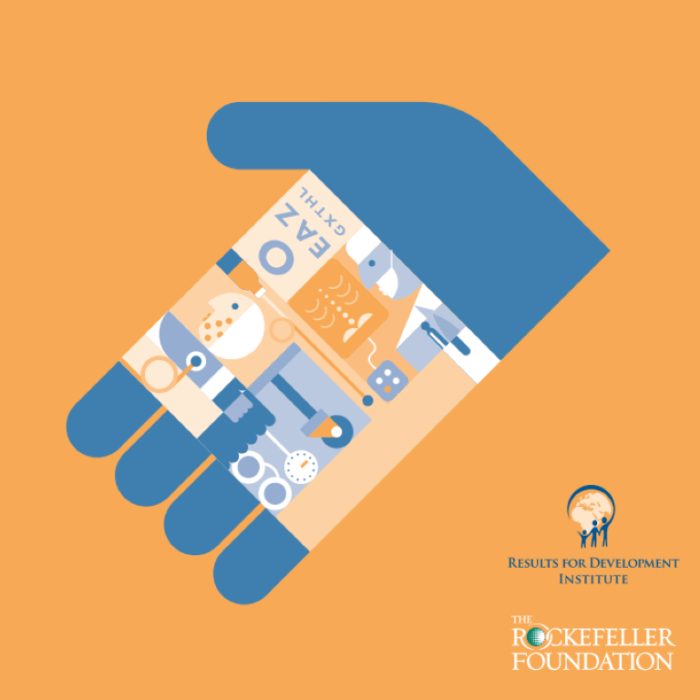The Challenge
Throughout the developing world, most health systems are characterized by mixed public and private financing and delivery of care. Greater quality and access calls for further thinking on the role of the private sector into health systems and a broader systems perspective on how public and private sectors can work together to address the challenges of affordability, quality, and availability of care.
The Opportunity
In January 2008, the Rockefeller Foundation asked the Results for Development Institute (R4D) to lead an effort to better understand the role of the private sector in health systems in developing countries. In partnership with the International Health Policy Program of the Thai Ministry of Public Health and other health policy research organizations, R4D worked to identify opportunities to strengthen public/private health systems through the collection, analysis, and dissemination of information and evidence on non-state health care providers and funders, and on public stewardship mechanisms designed to better harness these private actors.
Our Work
Drawing on the work of a wide range of academic, think tank, and consulting partners, the project included the following activities:
- Analysis of Demographic and Health Survey data on where people seek care for various health issues.
- Cataloguing and analysis of private sector health delivery and financing models that some have characterized as “innovative.”
- A global scan and survey of countries about their regulatory models.
- A web-based survey and in-depth interviews of attitudes toward the private health sector.
- Analysis of how purchasing and contracting models can support health systems goals.
- New thinking on stewardship and how to make health markets work better for the poor.
- Macroeconomic analysis of national public and private health spending
- An analysis of the potential of the private sector to enhance health product supply chains.
The project was completed in January 2009 and resulted in two synthesis reports by the Results for Development Institute and 13 technical papers by various institutions:
- Andhra Pradesh Health Sector Reform: A Narrative Case Study
- Health Sector Governance and Implications for the Private Sector
- Innovative Health Service Delivery Models for Low and Middle Income Countries
- Innovative Pro-Poor Healthcare Financing and Delivery Models
- Making Health Markets Work for the Poor: Improving Provider Performance
- Overcoming the Challenges of Scaling Voluntary Risk Pools in Low-Income Settings
- Performance Incentives in Provider Purchasing and Contracting Arrangements: Rationale and Experiencess
- Private Sector Role in Supply Chains: Review of the Role and Potential for Private Sector Engagement in Developing Country Health Supply Chains
- Private-public mix in woman and child health in low-income countries: an analysis of demographic and health surveys
- Provider Purchasing and Contracting for Health Services:The Case of Zambia
- Provider Purchasing and Contracting Mechanisms
- Public Stewardship of Private Providers in Mixed Health Systems: Synthesis report from the Rockefeller-Foundation sponsored initiative on the role of the private sector in health systems
- Regulation of Health Service Delivery in the Private Sector: Challenges and Opportunities
- The role of the private sector in health: A Landscape Analysis of Global Attitudes toward the Private Sector
- Toward a New Paradigm for Health Sector Development
Building upon the findings of the Private Sector in Health Systems effort, R4D has continued to work with the Rockefeller Foundation on the Foundation’s initiative, Transforming Health Systems (THS).
Photo: Access Afya ©Center for Health Market Innovations/R4D















